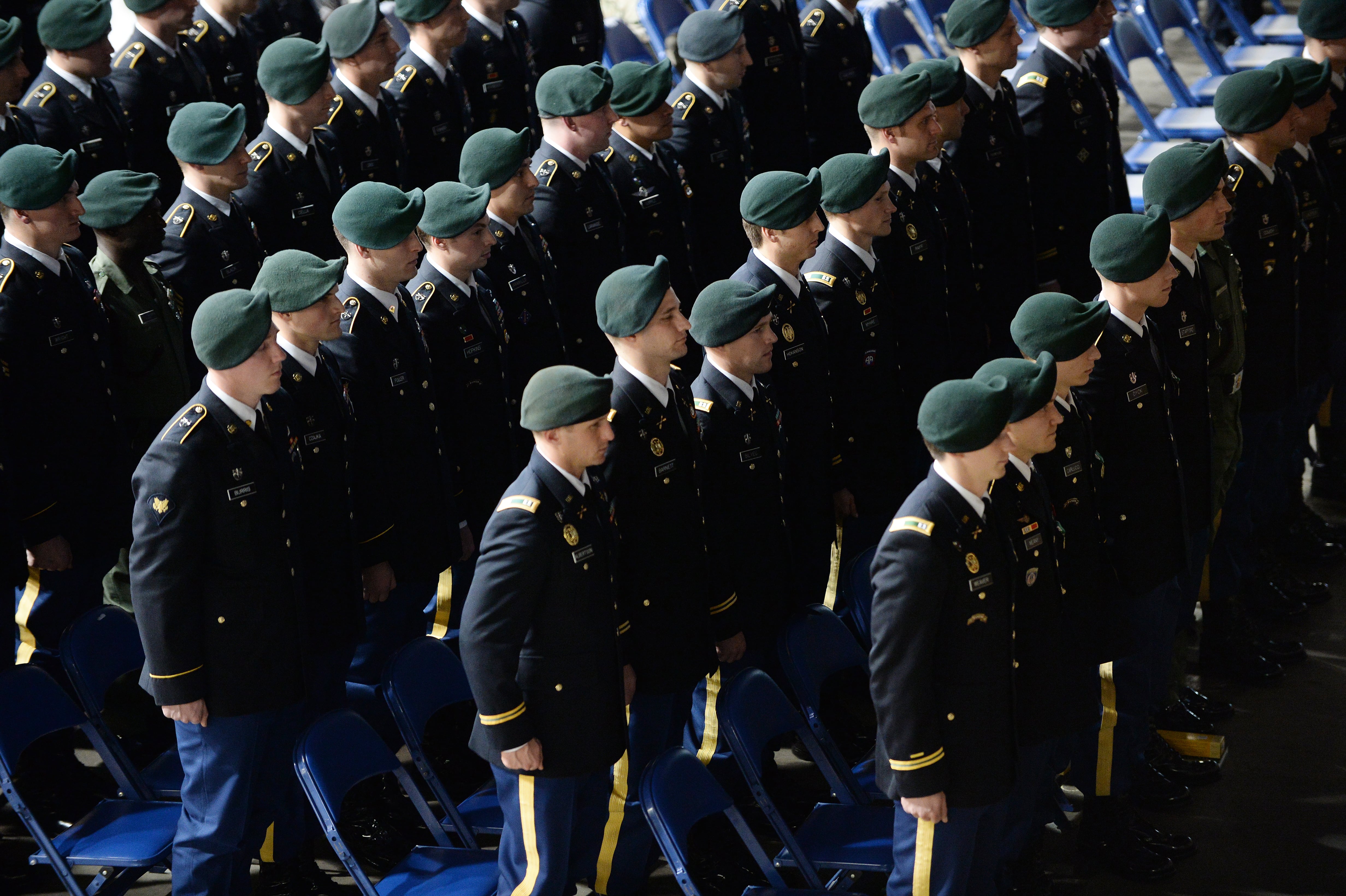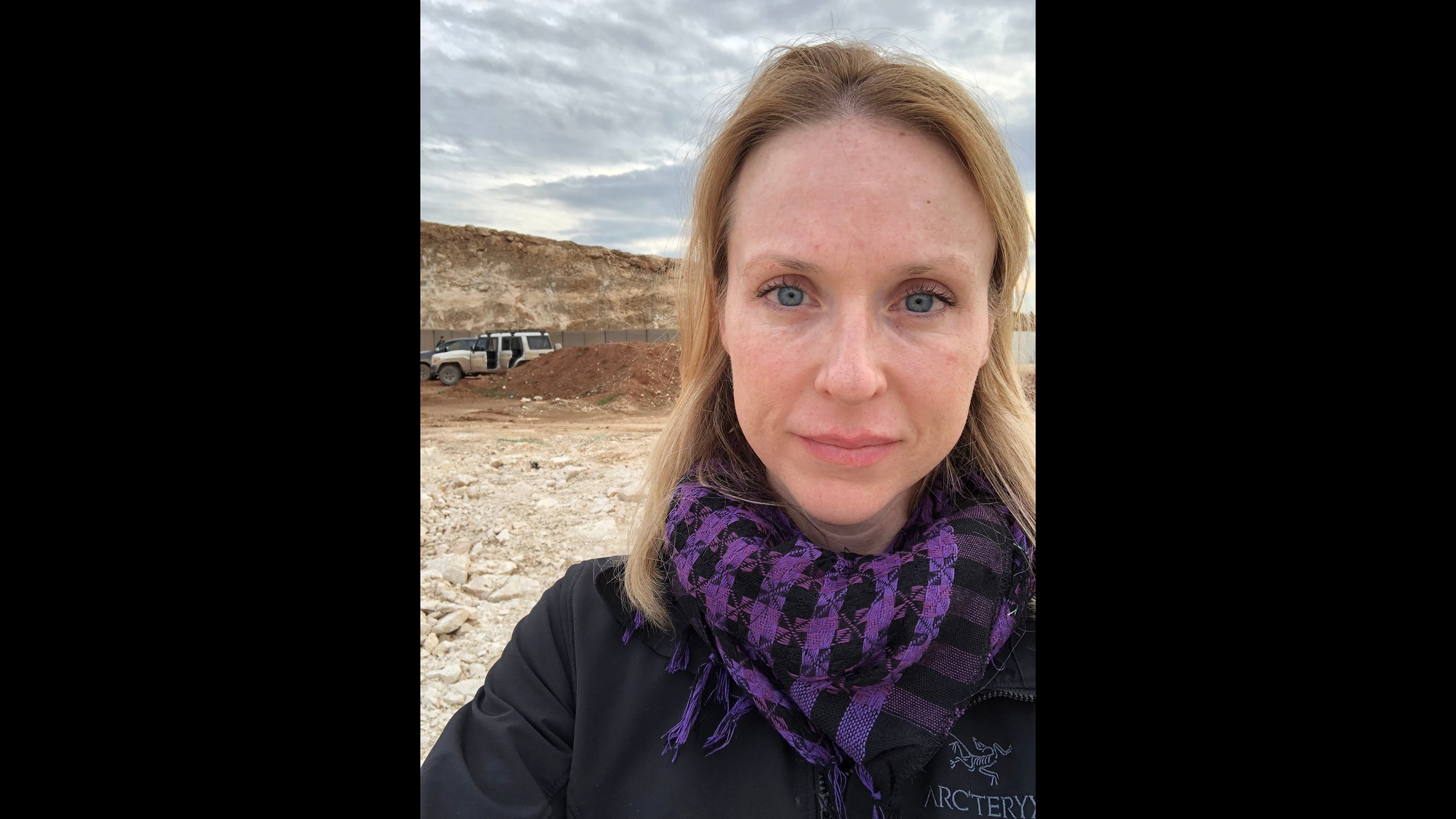The recent New York Times story that the first female is set to pass the Special Forces Qualification Course has reignited the heated debate over the role of women in special operations. For the Special Forces Regiment, commonly referred to as “Green Berets,” this means not only has a female earned the right to wear the beret and tab, but she will be employed in an operational role once she arrives at her Special Forces Group.
A female Green Beret showing up at Special Forces Group for assignment to Operational Detachment Alpha (ODA or A team) will be groundbreaking for the regiment. Everything that she has done so far in SF is groundbreaking, that is until she deploys to combat. In combat she will join the silent sisterhood of women who have fought and died alongside their brothers in arms throughout our nation’s longest war.
If a woman is good enough to be deployed to combat for service on the frontlines alongside special operators, she deserves a shot a earning a permanent spot on the team. No standard should change to accommodate women, or any candidate, but everyone should be given the chance. Special Forces should provide equality of opportunity, not equality of outcome. If that means we only get one women graduate every three to four years, so be it.
RELATED

The women who volunteer for Special Forces want what their male counterparts want: a chance to prove they are worthy to serve with the best. Earning the title comes with some credibility, but it really just earns you a chance to prove yourself every day — our “What did you do today?!” culture keeps us sharp, but can be exhausting. For females, this burden will be even greater and they know it, but they are still volunteering. We want people who see these odds and raise their hands — that drive is what makes Special Forces unique.
Many will say that the recent changes to the SF course were made specifically to allow a woman to pass. This argument does not make sense, the standards likely changed to get more new graduates out of the school house to the operational groups. Between 2007 and 2010, Special Forces was mandated by Congress to add an additional battalion of Green Berets for each active duty SFG to meet the demands of our longest war.
Approximately 900 new Green Berets were needed to fill the new battalion in each of the five active duty SFGs. This massive growth was demanded in addition to the normal demands for new Green Berets on the existing ODAs. So the change in standards was to get hundreds more Green Berets qualified to fill unrealistic demands, not to get one female in four years a green beret.
Now that we have a female Green Beret, the SF regiment must recognize that the employment of the female Green Beret(s) will take nuanced leadership. Once she is in a group, she needs to be employed in a way that benefits the mission. There are many jobs that women naturally excel at in the reconnaissance, intelligence collection and unconventional warfare realm; the few women who earn the Green Beret should be used in a role where her gender enhances the mission.
Women have already served in these roles within special operations forces (SOF) out of necessity. What’s unique about the female Green Beret is due to her earning her spot in our regiment, she will be given the opportunity to train for this fight and become a master in the art of special operations. The women who have gone to war alongside us previously were limited by their job titles, they were not SF so their job titles prevented them from training for special operations solely as Green Berets and other SOF do.
Women have been participating in these operations since the forerunner to CIA and SOF, the Office of Strategic Services, sent women like Virginia Hall behind Nazi lines to conduct unconventional warfare.

My late wife Shannon Kent, silently served in our ranks until the day she was killed in Syria hunting ISIS. Shannon was killed on her fifth SOF combat deployment. She began her career as an analyst and earned a spot collecting ground intelligence for SEAL strike forces for four combat deployments to Iraq and Afghanistan before being selected to deploy with the SOF task force in Syria.
Shannon’s death tragically shows the equal opportunity that women experience on the battlefield: she was killed alongside John Farmer, a Green Beret; Scott Wirtz, a former Navy SEAL; and Ghadir Taher, a female Arabic linguist.
By now we all know women in combat and women in special operations is nothing new. By allowing women to try out for SF, we are giving them the credit they have long deserved — they have earned the right to push themselves, be miserable and live a demanding lifestyle. It is on the SF regiment to ensure our standards are upheld by all of our members and to make sure that we properly use the few women who earn their way into our ranks.
Joe Kent is a retired Army Special Forces chief warrant officer who served for over 20 years and completed 11 combat deployments. He is also a Gold Star husband. His wife, Navy Senior Chief Petty Officer Shannon Kent, was killed in 2019 conducting special operations against ISIS in Syria.
Editor’s note: This is an Op-Ed and as such, the opinions expressed are those of the author. If you would like to respond, or have an editorial of your own you would like to submit, please contact Military Times managing editor Howard Altman, haltman@militarytimes.com.









